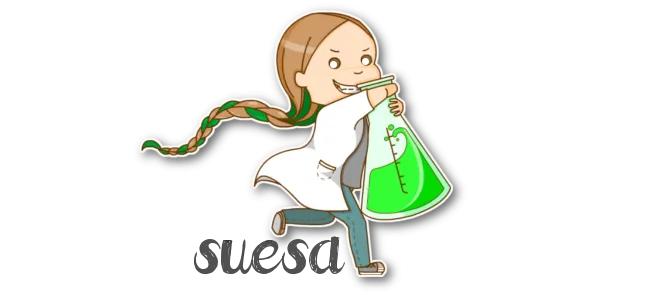
Earlier this week, I wrote an essay for class titled “How misinformation and a lack of public trust affect clinical trials during an epidemic”. Once it’s graded and I won’t get in trouble for plagiarising myself, I will share it here on Hive for you to read.
While writing this essay I realised that I actually wanted to write a different one with a very similar topic. In the current pandemic, there is a lot of information floating around, and many people getting it horribly wrong. I want to take a look at that, and its implications.
This will be less well-cited and edited than an essay because I’m doing it for fun and not to be graded on it, so bear with me.

What’s in a name?
nCoV19, SARS-CoV-2, Covid-19 (in a variety of spellings), coronavirus, there are many names floating around for the disease, and people don’t always seem sure what the correct one is. In a way, they all are.
nCoV19 was the original name for the virus, later changed to SARS-CoV-2, (Severe acute respiratory syndrome coronavirus) a name that highlights its close relationship to SARS-CoV. Covid-19 stands for “coronavirus disease 2019”.
The easiest way to memorise this is by comparing it to HIV. Here, HIV is the virus (like SARS-CoV-2) and AIDS is the disease (like Covid-19). So you can say “The Covid-19 virus”, but you can’t say “The SARS-CoV-2 virus”.
So far so good.

The problem with misinformation
Twitter, Facebook, social media in general lead to a fast spread of information nowadays, especially during this pandemic. The problem is, in contrary to peer-reviewed papers, there is a lack of fact checking that can quickly get out of hand [1]. In addition to that, everyone is suddenly an expert and shares “their truth”. It’s normal, people want to spread information when things go sideways, and misinformation is simply shared alongside it [2].
That is relatively unproblematic until it actively harms people.
After Donald Trump endorsed using hydroxychloroquine against Covid-19, some people started self-medicating, overdosing, and as a result seriously damaging their health [3]. Trump is not a doctor, and I doubt that he listens to his advisors all that much. Because while hydroxychloroquine is implicated to work against viruses [4], the studies are insufficient so far.
And those who need hydroxychloroquine? Those with malaria, rheumatoid arthritis, and systemic lupus [5]? They might run out of their medication because suddenly it’s used for something else.
I will not go into detail about how much damage conspiracy theories about 5G mobile networks [6] and government involvement [7] can cause. This is more about misinformation in the general population.

Lack of scientific understanding and dangerous half-knowledge
Most people have some basic knowledge about scientific topics. They know about the immune system, they know how to stay healthy, they’ve read all the articles and now they’re convinced they know what it’s all about.
The problem is, in most cases they don’t.
Let’s take Trump as an example – again. Even though it hurts.
Here’s the quote I will talk about:
”So, supposing we hit the body with a tremendous, whether its ultraviolet or just very powerful light, and I think you said, that hasn't been checked but you're gonna test it. And then I said, supposing it brought the light inside the body, which you can either do either through the skin or some other way, and I think you said you're gonna test that too, sounds interesting. And I then I see the disinfectant, where it knocks it out in one minute, and is there a way you can do something like that by injection inside, or almost a cleaning. Because you see it gets in the lungs, and it does a tremendous number on the lungs. So it'd be interesting to check that.” [8]
Lots to unpack here.
Most media outlets immediately published headlines like “Trump suggests injecting bleach to cure Covid-19”. I can’t blame them; it sounds like this. And considering the general lack of intelligent statements from him, it does not seem so far off. But actually, he’s asking two questions:
- Can we use UV light or similar to kill the virus inside the body?
- Can we somehow disinfect the lungs?
These questions are still ridiculous to most people. But they illustrate a very basic problem: Lack of scientific understanding.
Humans look for patterns. They see that one thing works, and wonder if that can be applied to a different situation.
Yes! UV light kills a virus on a surface. Yes! Disinfectants do that too, very efficiently. No! You can’t just use that in the body.
And then they look at you, confused, and ask ”But why not?”.
I have encountered situations like this myself.
A few days ago, I argued with an anti-vaxxer on Facebook. She said that she wouldn’t want to receive the SARS-CoV-2 vaccine once its available. I tried to convince her that it’s a bad idea. And then she said two things that made me hesitate:
- “The fact that some people can’t receive the vaccine obviously shows that vaccines cause damage. I don’t have to be a doctor to see that!”
- “I prefer focusing on building a strong immune defence, instead of blocking it with vaccines.”
Here we have someone who understood some things but drew the wrong conclusions.
In immunosuppressed people, live virus vaccines are not recommended. Why? Because while a functioning immune system can deal with those easily, an immunosuppressed person can not [9]. Chemotherapy can make you lose already acquired immunity [10]. There are other reasons why people either can’t get vaccinated or why vaccines would be ineffective. This does not mean vaccines in general are harmful.
The second one baffled me, as I wondered why she would think that the vaccine would suppress the immune system. And then I remembered that I had explained the concept of a “cytokine storm” earlier. In a nutshell, a cytokine storm is an overreaction by the immune system. It produces a lot of communication chemicals (cytokines) to help fight the infection but ends up damaging the tissue. This is believed to be one of the main reasons for Covid-19 deaths [11]. Apparently, mentioning this made her think that a vaccine would aim to suppress this.
Which is not the case.
Vaccines train the body to recognise viruses, bacteria, and other pathogens based on their surface structure. It works very similar to a natural infection, just with either no or much, much lower risk of developing the actual disease. The usual processes happen, with the immune system building antibodies that fit the surface structure and then producing memory cells that remember how to make these antibodies. Once infection with the real pathogen happens, the immune system can react a lot faster and get rid of the virus before it has time to really take hold.
You don’t suppress the immune system, you teach it.
But the woman I was discussing with didn’t know that. She didn’t know how vaccines work, but she thought she did. And honestly, I can’t blame her! She didn’t study biology! For most other fields, it is not expected that people know how everything works.
You are not expected to know how programming works. You are not expected to know how the chemical reactions in the tank of your car work. Or why your computer is able to communicate with the rest of the internet. But for some reason, everyone is expected to understand health and the underlying biology. And that leads to problems.

Elitism and aggression
”How can they believe such a thing? They’re so stupid!”
Everyone I know is guilty of this. A friend messaged me yesterday, telling me their dad had covered his home office door with copper wire to keep the virus out. Why? Because he had read that copper kills it. We had a laugh. Then I thought about it.
That man was acting on the information he had and tried to protect himself. Can we really blame him?
For many people, the first reaction is to ridicule and shame people for being misinformed or misunderstanding things. They sometimes even get aggressive. But does that actually help? Will that change the misinformed person’s mind, or will that person feel hurt and reject the new information that has been presented?
I’d say in most cases, this is the wrong approach and will only lead to more problems.
Not everyone had the same access to education and information that you had.
Not everyone understands everything the same way you do.
Not everyone shares the same life experiences.
Why do you need to feel intellectually superior to someone who is only trying their best to stay healthy? Why do you need to feel better about yourself by putting someone else down?
Most of us are guilty of this, and I include myself. But the past can’t be changed, so it’s time to focus on the future.
How will you interact with people that believe misinformation? Attack them so that they never reach out for help again? Or explain the details in a way that they understand, so they can change their behaviour?

There are still many things about SARS-CoV-2 that we don’t understand.
We don’t know if there is lasting immunity after an infection.
We don’t know all the ways it affects the body, but more and more worrying symptoms are reported constantly, like it causing strokes in young people [12].
We don’t know if there will be a vaccine, and if yes when.
We just don’t know. And that’s stressful for all of us – including the researchers.
I invite you to share some misconceptions that you have encountered in the comments below, and you can also feel free to ask questions. I can’t promise to have an answer, but I will try my best to explain things – even if they are as “mundane” as how certain parts of the immune system work. Because it is not mundane, and science is hard.
Sources:
- Rochwerg, B. et al. Misinformation During the Coronavirus Disease 2019 Outbreak: How Knowledge Emerges From Noise. Critical Care Explorations | Society of Critical Care Medicine Journal 2, e0098 (2020).
- Miller, G. Researchers are tracking another pandemic, too—of coronavirus misinformation. Science | AAAS https://www.sciencemag.org/news/2020/03/researchers-are-tracking-another-epidemic-too-misinformation (2020).
- Owens, B. Excitement around hydroxychloroquine for treating COVID-19 causes challenges for rheumatology. The Lancet Rheumatology 0, (2020).
- Savarino, A., Trani, L. D., Donatelli, I., Cauda, R. & Cassone, A. New insights into the antiviral effects of chloroquine. The Lancet Infectious Diseases 6, 67–69 (2006).
- Fox, R. I. Mechanism of action of hydroxychloroquine as an antirheumatic drug. Seminars in Arthritis and Rheumatism 23, 82–91 (1993).
- Gallagher, C. Virus of Covid-19 conspiracy theories spreads to Ireland. The Irish Times (2020).
- Molter, V. & Webster, G. Coronavirus Conspiracy Claims: What’s Behind a Chinese Diplomat’s COVID-19 Misdirection. (2020).
- Panetta, G. See the full video and transcript of Trump suggesting disinfectant might be injected as a coronavirus cure. Business Insider (2020).
- Arvas, A. Vaccination in patients with immunosuppression. Turk Pediatri Ars 49, 181–185 (2014).
- Zignol, M. et al. Assessment of humoral immunity to poliomyelitis, tetanus, hepatitis B, measles, rubella, and mumps in children after chemotherapy. Cancer 101, 635–641 (2004).
- Bonenberger, A. Looking Out for Cytokine Storms. Research, Clinical & Data Driven Responses to COVID-19 (2020).
- Woodward, A. 5 young New Yorkers with mild COVID-19 cases were recently hospitalized with strokes. Doctors say the coronavirus can cause blood clots. Business Insider (2020).

Signature by @atopy
